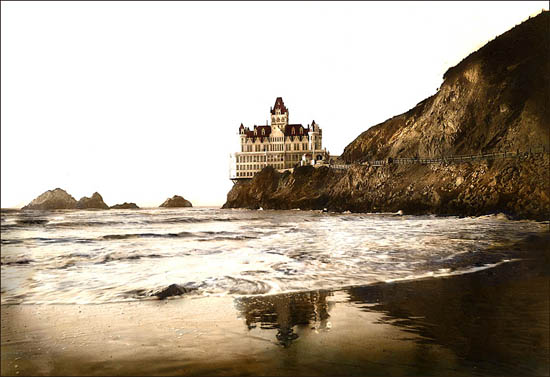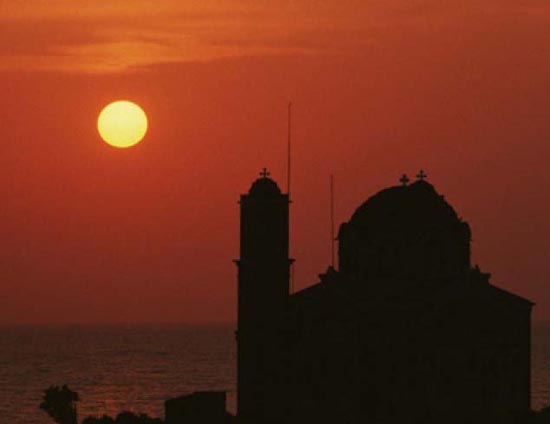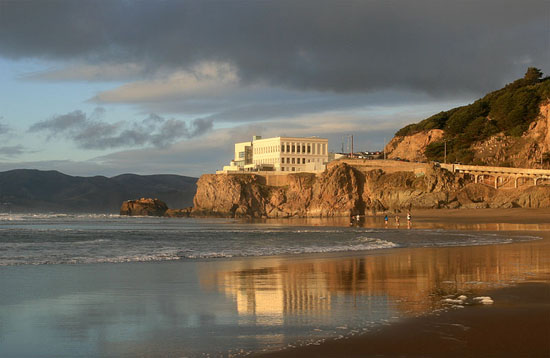'Sailing to Byzantium'

Arguably the most brilliant poem ever written about aging, W.B. Yeats' Sailing to Byzantium (written 1926-27) is about sailing off into eternity. Yeats died in 1939. I deliberately chose the image below not from Byzantium itself, because Byzantium is a state of mind. To attempt to identify its meaning in Istanbul misses the point. Yeats never got there - Italy was as far East as he got. Byzantium can be anywhere really, a timeless world inhabited nonetheless by real human beings passing through it. But it seems to be on the coast.

That is no country for old men. The young
In one another's arms, birds in the trees,
—Those dying generations—at their song,
The salmon-falls, the mackerel-crowded seas,
Fish, flesh, or fowl, commend all summer long
Whatever is begotten, born, and dies.
Caught in that sensual music all neglect
Monuments of unageing intellect.
An aged man is but a paltry thing,
A tattered coat upon a stick, unless
Soul clap its hands and sing, and louder sing
For every tatter in its mortal dress,
Nor is there singing school but studying
Monuments of its own magnificence;
And therefore I have sailed the seas and come
To the holy city of Byzantium.
O sages standing in God's holy fire
As in the gold mosaic of a wall,
Come from the holy fire, perne in a gyre,
And be the singing-masters of my soul.
Consume my heart away; sick with desire
And fastened to a dying animal
It knows not what it is; and gather me
Into the artifice of eternity.
Once out of nature I shall never take
My bodily form from any natural thing,
But such a form as Grecian goldsmiths make
Of hammered gold and gold enamelling
To keep a drowsy Emperor awake;
Or set upon a golden bough to sing
To lords and ladies of Byzantium
Of what is past, or passing, or to come.
- Published in The Tower (1928)
The image up top is of Cliff House, that graced the San Francisco coastline at Point Lobos, just SW of today's Golden Gate from 1896 till 1907, when it was burnt to the ground. It was highly romantic then and it still is. The ocean sweeps around the heads into San Francisco Bay like the Bosporus and Golden Horn at Istanbul. After the original Cliff House burnt down, another arose in its place (you can see the current version at bottom). Nearby are the ruins of the Sutro Baths, which also opened in 1896 and which burnt down in 1966. The image struck me as Yeatsian. But I think this is what he was thinking of:

This poem and its successor, Byzantium, are about what Yeats once referred to as "the search for the spiritual life." For me, it's exploring aging and finding pleasure in the wisdom (sophia) that comes with it - or should. It also fits into a Western (specifically Irish) Orientalism.

The prophetic golden bird alluded to in the last stanza recalls Hans Christian Andersen's The Nightingale and others are reminded of Jerusalem and the Sacred City of the Apocalypse of St. John.
For related links see here (Yeats) and here and here (Orientalism). Below is Cliff House today - its fifth incarnation - restaurants...

